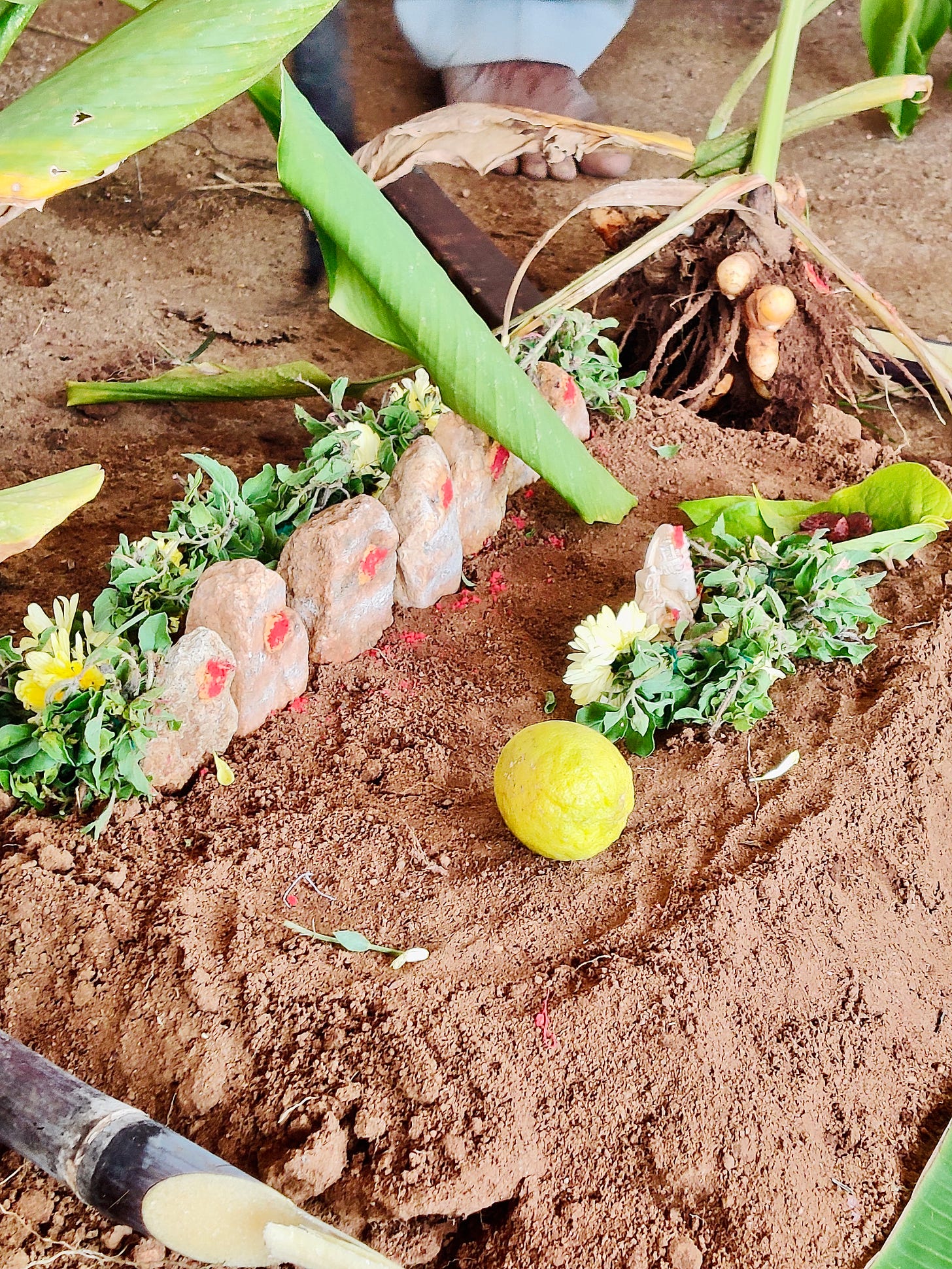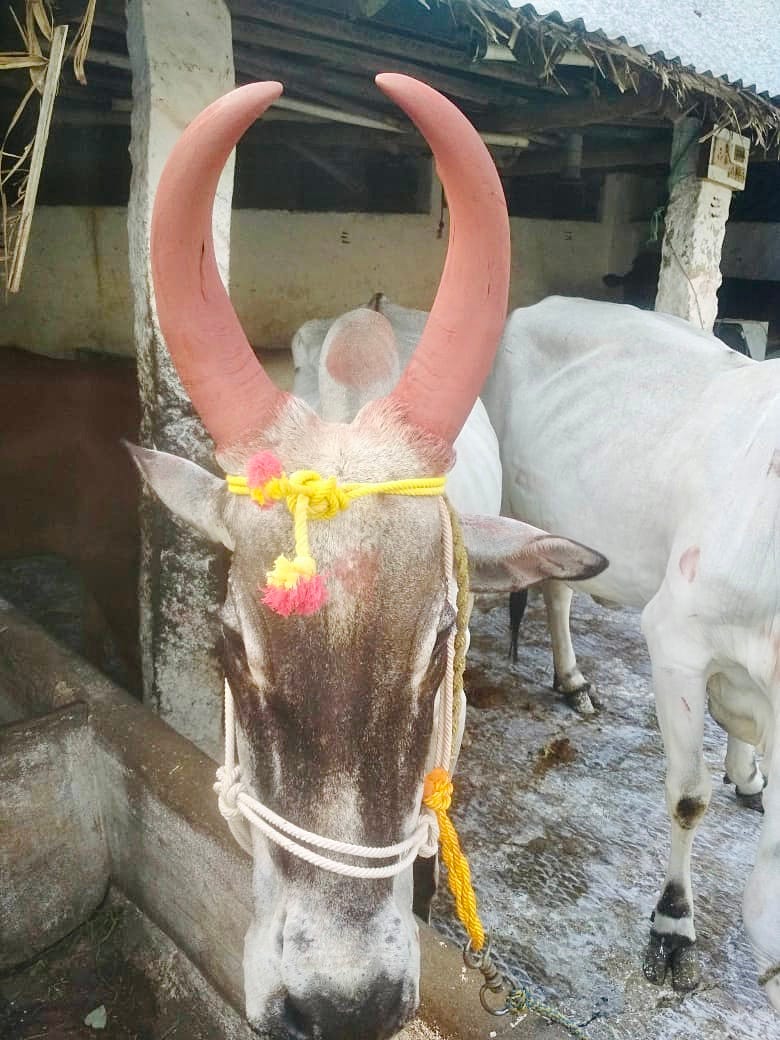The Significance of Pongal
Hello and Vanakkam to you ! This is my very first post here and instead of an introduction about myself and what this space will be for, I thought it more timely to share about ‘Pongal’ since it it is the time of the year.
During my childhood, I’ve witnessed the annual Pongal celebrations in my parents’ home and never questioned what Pongal was and why we celebrate it. On the morning of Pongal, which always falls on January 14th, my mother would boil some milk in a pot until some of the it boiled over and then she proceeded to add some washed rice and lentils to the pot. It’s also customary to shout, “ Pongalo! Pongal!” as the milk is boiling over the edges of the pot to usher in a year of prosperity and all things good as the word pongal refers to both the rice dish and the action of something being so abundant and in excess that it is ‘boiling over’. Once the rice-lentil melange is cooked until mushy, she’d add jaggery syrup and then some cashews and raisins toasted in ghee. Once the Sakkarai (Sweet) Pongal dish is done cooking, we have it for breakfast together with some other sides like vadai and sugarcane.
Once I had my own home in 2010, I began to explore cooking and making a good Sakkarai Pongal seemed like an essential lifeskill to acquire as I loved the taste of its sticky sweetness that is only intermittently interrupted by ghee-toasted golden raisins and cashews. However, apart from being able to cook a Sakkarai pongal that invoked nostalgia, it became clear to me over the years that I did not know much about the significance of Pongal. And having never sowed a single rice paddy in my life, it also meant that the festival may never mean as much to me as it does to farmers whose livelihood depended on successful harvests. With the pandemic still looming over us, the recent farmers’ protest in India and the climate crisis, I wondered what Pongal meant to farmers in Tamilnadu this year.
I approached Devi who co-owns and runs @biobasics , an organisation that sources organic whole foods directly from farmers and sells them to customers all over India. Bio Basics is based in Coimbatore and what caught my attention on their Instagram page is the variety of heritage rice that they carry. (More on that in another newsletter). As Devi works directly with farmers and is a farmer herself, she was able to shed some light on Pongal and its significance to farmers in South India.
According to Devi, Pongal is essentially a harvest festival that predates the arrival of Hinduism and its purpose is to honour and give thanks to the elements that make farming possible. It is also one of the few Indian festivals that uses the solar calendar rather than the lunar to mark the occasion each year on January 14th. The 4-day Pongal festival celebrates the culmination of the most important harvest season that begins in August and ends in January. This significant harvest is also celebrated in several Indian states during the same period. In Tamilnadu, it begins with Bhogi on 13th January where homes are lime washed, painted, cleaned and unwanted items are discarded or burned to welcome the new harvest the following day. New season neem and mango flowers are also hung on doors to symbolically cleanse the household and kolams (rice flour drawings) are also drawn in front of each home. Having a bonfire on Bhogi night and burning unwanted belongings is also symbolic as it means renewal and getting rid of negativity. Pongal is the most important harvest festival and it is celebrated with much aplomb in the farming communities so many in the cities return home in time to their rural villages to help prepare for it.
To kickstart the second day of Pongal, also called Surya (Sun) Pongal, thanksgiving prayers are offered to the sun god at dawn. As soon as the sun rises, earthen pots decorated with young turmeric leaves and bulbs, that all pay homage to the gift of land, are filled with fresh milk, a gift of the cow, and boiled until it spills over. Soon after, rice, lentils, jaggery and sometimes cashews and raisins are added to the pot of milk and cooked until a sweet rice dish emerges. Sugarcane and turmeric plants are all crops that are harvested around the time of Pongal and hence, they’re used as festive decorations together with colourful flower garlands. Everyone gathers around to enjoy the Sakkarai Pongal for a sweet ending to a successful harvest.
For lunch, many homes make the savoury version of Pongal, Ven Pongal or Kaara Pongal as it’s known, together with other dishes made from new crops such as sesame seeds and sugarcane.

The following day, the cow, without which farming would be impossible, especially in the past, is venerated and celebrated with Mattu (Cow) Pongal. The working cows are fed pongal, adorned with flowers and their horns are decorated . They are given a rest day and some let their cows run free in the villages while others are brought on processions. Devi tells me that Mattu Pongal is very festive and colourful, especially in the villages. Despite machinery doing most of the heavy work these days, cows are still play a key role in the life of a farmer as for some, they provide income from the milk they provide.
The final day of festivities is with Khaanum (viewing) Pongal and Kanni (bachelorettes) Pongal. It is a day of relaxation as people visit their relatives homes to admire their newly painted homes and young ladies pray for successful matrimonial matches in the coming year. It is a day that celebrates abundance and fertility in all its forms. With that, Pongal celebrations taper off and preparations for the next growing season begins.
On a sombre note, Devi explains that unpredictable weather brought on by climate change has wrecked havoc to many farmers’ livelihoods, especially with the unusually heavy down pours during the South West Monsoon at the end of the past few years. The pandemic has also worsened things for Bio Basics as they’re faced with many logistical issues. Despite the unpredictable future, Devi reiterates that Pongal is still celebrated with much fanfare as it marks the end of the longest farming season and there is still much to be thankful for.
After my conversation with Devi, I have a new found respect and appreciation for all that farmers do. Perhaps Pongal should also be about being thankful to farmers. I feel deeply indebted to them for all their hard work and sacrifice that helps put food on my table. Farmers face steep challenges in the coming years as they would most likely pay a very heavy price with climate change and an uncertain economy. Hence, giving thanks and appreciating the efforts that go into producing my food seems like the least I could do at this moment.








